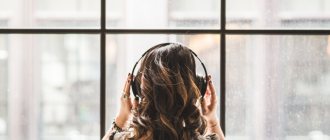Practical psychology is a branch of psychology dealing with the practical application of its knowledge. It is used in all spheres of human activity: sports, healthcare, education, production, law. It gained wide popularity thanks to the development of the Internet and the interest of many people in science itself. This resulted in the appearance of numerous works on practical psychology, which in fact had a very distant relation to it.
Tasks of practical psychology
The areas of practical psychology are:
- Psychological correction : a targeted impact on the human psyche, thanks to which it is brought into line with the age group or other norm.
- Psychodiagnostics : obtaining psychological information about a person or group.
- Psychotherapy : assisting in productive personality change in cases of serious psychological problems.
- Psychological counseling : creating conditions for overcoming life's difficulties and productive existence in specific circumstances.
The basis is that a person appears holistically, in the unity of his specific abilities, qualities, processes; a practicing psychologist must use a set of different methods that have developed in different schools and areas of psychotherapeutic practice.
Practical psychology unites all areas of psychology that are aimed at practice. Her main goal is to help people experiencing difficulties. For example, the following may need psychological help:
- Spouses whose marriage breaks up due to constant conflicts.
- A sick person who is experiencing psychological problems.
- A student on the verge of choosing a professional path.
- A person in a situation of internal conflict and crisis.
- Adolescents with behavioral disorders.
- Groups of people and teams connected by family or professional ties.
- Leaders who manage other people and want to do it effectively.
In addition, practical psychology solves three levels of problems:
- Applied tasks: development of methodological materials on practical psychology, special training programs, creation of draft normative documents for such activities.
- Research tasks: studying the patterns of personality formation and development in order to develop methods, technologies and ways of applying psychological knowledge.
- Practical tasks: determined directly at the place of professional activity of the practicing psychologist.
If you decide to study practical psychology on your own, then starting to study it should come down to solving the following three tasks:
The first task : learn to understand the essence of your mental phenomena and their patterns.
Second task : learn to manage your mental phenomena.
Third task : use the acquired knowledge to solve psychological problems.
Psychological problems that a psychologist can solve
Let us remember that a psychologist is not a doctor, he has a humanities education. If obvious mental disorders are noted, it is better to immediately see a psychiatrist. And contact a psychologist if the following problems arise:
Firstly, it is difficult for you to communicate with strangers.
Secondly, the family is on the verge of divorce. The crisis in family relationships seems insoluble.
Thirdly, dissatisfaction with one’s lifestyle and one’s own character is growing, and other internal conflicts are noted.
Fourthly, misunderstandings and contradictions in the relationship with your child intensify.
Fifthly, it is difficult to determine oneself in life.
Sixthly, the lifestyle has changed, and now the person experiences severe mental discomfort.
Seventhly, various kinds of phobias haunt you and interfere with your normal life.
Eighth, you quit smoking and experience increased anxiety.
In principle , etc...
All these life problems can be solved if you turn to an experienced specialist in time. It is possible to prevent the development of manic disorders and depression and prevent relapse. Just don’t put off visiting a psychologist until later or tomorrow. If you read something here that resonated with you, then call and make an appointment now, and if you live in another city and cannot come to the psychological center, then there is such a service as a telephone consultation with a psychologist.
And don’t listen to some citizens who are convinced that they are able to cope with psychological discomfort on their own, and that only sick people should turn to a psychologist. This judgment is incorrect. At any moment, some event can occur that can become a turning point in life. And the participant in the event can no longer always psychologically cope with its consequences.
For example, an event is connected with the fate of a loved one:
- serious illness;
- treason;
- divorce;
- death.
Psychological trauma received at work is no less dangerous. These include penalties from management, joining a new team, and dismissal.
As a result, a person constantly feels unhappy, and the surrounding reality is perceived extremely negatively. Laughing depression develops, which does not clearly manifest itself and can last for many years.
Where to start studying practical psychology?
If you do not take into account the obvious advice “go to university,” it turns out that this is a rather complex question.
Professional practicing psychologists are very critical of popular psychological literature, calling it “pop psychology,” which sounds rather pejorative. And it goes not only to real experts on the true purpose of women or specialists in the psychology of relationships, but also to famous authors such as Dale Carnegie, Eric Berne, John Gray.
But if you don’t have 5-6 years to get a higher education in this field, but want to study practical psychology for the purpose of self-help, then you need to read a lot, and not just academic textbooks. For what?
Tony Robbins, in his book “Awaken the Giant Within,” wrote that before he started helping people, he read about 500 books on psychology. He read and immediately applied the theory into practice. Robbins recommends NLP because this field provides a huge number of correction techniques. Believe it or not? It's up to you, but Robbins has a huge number of admirers around the world, whom he, in their own words, helped, so at least his work is of interest.
Therefore, there is only one main piece of advice - read as much as possible, but always check all the recommendations you find in books, submit the information to critical analysis, and compare it.
You can find your own path. Consider that many great motivators, people who influence the lives of thousands of others, are actually self-taught. They chose their path, read and studied chaotically, and this ultimately created their unique personalities with original ideas. This way, of course, you will not gain academic knowledge, but it all depends on the initial goals with which you start studying.
The same applies to those who want to get a higher education - do not limit yourself to textbooks according to the program, study new things, because this is a very dynamic area in which amazing discoveries are made almost every day.
At the same time, ask yourself the following questions once a week to help you stay on track:
- What do I really want to achieve by studying psychology?
- How will studying it affect me and my environment?
- How will my life change when I have the necessary knowledge?
- Is this really a goal for which I am willing to spend part of my precious life?
Don't become a theorist in the worst sense of the word. Throw the techniques you’ve learned into battle, testing their effectiveness. But there is another caveat associated with this: some techniques are too complex for an untrained person. Therefore, before you do anything, think carefully about whether you are ready, about the consequences and risks. Don't rush headlong into the pool by following the first and most popular advice to go beyond your comfort zone.
Training to become a psychologist
Training to become a psychologist involves obtaining a higher education (specialty “Psychology”, code 37.03.01). To enroll, you must pass the Unified State Exam in Russian, biology and mathematics, or a foreign language at the discretion of the university. Some educational institutions also conduct interviews with all applicants as part of the admissions campaign (you can find out about this on the official website of the university, where one of the main profiles is supposed to be a psychologist).
Full-time education lasts 4 years, all other courses last 5 years. After completing your studies, you can enroll in a master's program (this option is more suitable for those who plan to study scientific psychology).
Courses
Prestige (Moscow) (9 months (300 academic hours))
Conducts professional retraining courses “Practical Psychology”. Disciplines: introduction to the profession, introduction to psychology, the subject of experimental and practical psychology, theory of activity, mental processes, modern theories of personality, fundamentals of psychological health, psychology of advertising. The classes include demonstrations of psychotherapeutic work with a client. Monthly payment in installments. Groups up to 12 people. 2 forms of training (evening, daytime).
MASPC (Interregional Academy of Industrial and Construction Complex) (MASPK)
The Interregional Academy of Industrial and Construction Complex (MASPK) invites you to obtain the specialty “Psychologist” as part of additional education courses. You can undergo professional retraining at MASPC in the distance learning format, while in any region of Russia and abroad. The Academy offers high-quality additional education and flexible prices.
IAEO (International Academy of Expertise and Evaluation) (remotely)
In this course, you can obtain the profession of a psychologist remotely in 3 months and 15,000 rubles: - One of the most affordable prices in Russia; — Diploma of professional retraining of the established form; — Training in a completely distance format; — Certificate of compliance with professional standards worth 10,000 rubles. For a present! — The largest educational institution of additional professional education. education in Russia.
CHTA (Modern Scientific and Technological Academy) (SNTA)
You can get a diploma as a teacher-psychologist at the Modern Scientific and Technological Academy CHTA by completing professional retraining courses. Retraining lasts 3.5 months. Training takes place remotely. A diploma of professional retraining is issued.
Russian Institute of Professional Education "IPO"
Russian Institute of Professional Education “IPO” is recruiting students to obtain the specialty “Psychologist” under a distance program of professional retraining and advanced training. Studying at the IPO is a convenient and quick way to receive distance education. 200+ training courses. 8000+ graduates from 200 cities. Short deadlines for completing documents and external training, interest-free installments from the institute and individual discounts. Contact us!
Universities
Moscow Humanitarian University, Moscow State University
Psychological support of human life and society (Faculty of Psychology, Pedagogy and Sociology)
University of Russian Innovative Education
Psychology (Faculty of Humanities and Management)
Russian New University
Psychological counseling (Institute of Psychology and Pedagogy)
Peoples' Friendship University of Russia
Psychology (Philological Faculty of RUDN University)
Moscow State University named after M.V. Lomonosov
Psychology (Faculty of Psychology, M.V. Lomonosov Moscow State University)
Psychology of Personality
Personality psychology is a branch of science that allows us to understand the essence of human nature and individuality from a psychological point of view. It is closely related to practical psychology, so it is impossible to be interested in one area without touching on the other.
For example, to better understand people, you will need to become familiar with personality traits:
Character . This is the structure of persistent, relatively permanent mental properties that determine the characteristics of relationships and behavior of an individual. However, integrity of character is not absolute and can change over time. It depends very much on temperament.
Temperament . Without understanding temperament, you cannot create a complete map of a person's personality. It forms the basis for the formation and development of character, and is also determined by the type of higher nervous activity of a person. If a person is slow, and his emotions sluggishly flow from one to another, you can be sure that he is either a phlegmatic person or a melancholic person. Of course, every person has something of each type of temperament, but one of them always predominates.
Capabilities . These are personality traits that are conditions for the successful implementation of a certain type of activity. They are not reduced to skills, abilities and knowledge, but are found in the depth, speed and strength of mastering the methods and techniques of some activity. There are physical, literary, musical, structural and technical, mathematical, educational and mental abilities.
Motivation . This is a psychophysiological process that controls human behavior, setting its direction, organization, activity and stability. If you don’t learn to motivate others, or at least yourself, it can kill any desire to develop as a person, to work, to change the world, to influence others.
All these personality traits are closely related to each other. Psychology is a very complex and developing science, so studying it is a life-long process. If you love learning, you can make it a part of your life or even a profession.
How to learn to enjoy life: advice from a psychologist
Not everyone is able to enjoy what is happening around them, because this is often prevented by poor condition, a feeling of fatigue, depression or resentment. Often in such states, the world around us becomes boring, uninteresting and gray. To prevent this from happening, you need to take into account a number of psychological tips:
- smile more often;
- play sports;
- update yourself (haircut, coloring, shopping);
- dream;
- look for the positive in small things, travel;
- bring goodness to those around you.
These easy-to-follow tips from psychologists will help you move from a negative point and bring joy and positivity into your life. If nothing helps, don’t hesitate and contact a specialist, for example, psychologist Nikita Valerievich Baturin.
Books on practical psychology
The topic of practical psychology is extremely broad, so if you want to study it further, check out the books on this list.
- “How to treat yourself and people, or Practical psychology for every day” Nikolai Kozlov.
- “It's in your power. How to Become Your Own Therapist by Jeanette Rainwater.
- “A book for those who like to live, or Psychology of personal growth” Nikolai Kozlov.
- "On the limit. A week without self-pity" Eric Bertrand Larssen.
- “Psychology about personality” Alexey Bodalev.
- “Games that successful people don’t play. Master class in practical psychology” Pia Bylund, Kåre Christiansen.
- “Workbook of a practical psychologist: a manual for specialists working with personnel” Alexey Bodalev.
- “Practical consulting” Galina Kolesnikova.
- “The Gift of Psychotherapy” by Irvin Yalom.
- “Textbook of Systemic Therapy and Counseling” by Arist von Schlippe.
- "The Book of Self-Power" by Tony Robbins.
- From Frogs to Princes by Richard Bandler and John Grinder.
We wish you good luck!
Did you like the article? Join our communities on social networks or our Telegram channel and don’t miss the release of new useful materials: TelegramVKontakteFacebook
We also recommend reading:
- Storytelling
- Social technologies
- Methods of career guidance
- Psycholinguistics as a tool for in-depth study of speech and language
- Wundt's method of studying psychology
- Solving non-standard Fermi problems
- Cognitive psychology and cognitive psychotherapy
- Criminal psychology
- Where to start studying psychology
- Psychology of money
- Differential psychology
Key words:1Self-knowledge











